
The AI Compliance Dilemma Every Dental Practice Faces
Congratulations! You’re considering an AI receptionist for your dental practice. It sounds amazing. No more missed calls, 24/7 patient support, and your front desk team can finally focus on the patients sitting in your chairs instead of constantly answering the same five questions on the phone all day. But then the nagging question hits: “Is this even legal? What about HIPAA?”
Yeah… you’re not alone. Dental practice AI compliance has become one of the most pressing concerns for practice owners as artificial intelligence tools flood the market faster than you can evaluate them. The promise is incredible, but the compliance landscape feels like navigating a minefield blindfolded.
AI isn’t going away, and neither are HIPAA requirements. But with the right knowledge and approach, you can harness AI’s power while keeping your practice bulletproof from a compliance standpoint. We’ll help you remove the blindfold and walk you through everything you need to know about AI and HIPAA compliance in dentistry, plus share the free compliance templates that My Social Practice has partnered with Adams Brown CPA to create just for dental practices like yours.
The AI Revolution is Here (Whether You’re Ready or Not)
AI adoption in dental practices has exploded over the past two years. The applications are everywhere. AI is analyzing X-rays to detect decay and anomalies that human eyes might miss, with systems like VideaHealth and Pearl helping over clinics review radiographic images with enhanced accuracy. AI receptionists are handling patient calls, scheduling appointments, and managing follow-ups around the clock. Treatment planning software is predicting outcomes and optimizing patient care pathways.
But what many practices are beginning to realize is that with every shiny new AI tool that touches patient data, new compliance obligations pop up. The same technology that’s boosting your production could land you in legal hot water if you’re not careful about dental practice AI compliance.
HIPAA Meets AI: Where Things Get Complicated
HIPAA was written in 1996, long before anyone imagined AI systems that could analyze thousands of patient conversations or train on medical data across multiple practices. But the core principles remain unchanged: protected health information (PHI) must be safeguarded, patients must know how their data is used, and unauthorized access is strictly prohibited.
AI and HIPAA compliance in dentistry gets tricky because AI systems operate differently than traditional software. Where a typical practice management system stores data in predictable ways, AI platforms often distribute information across multiple server networks, sometimes 3-4 different locations simultaneously. This creates a much larger digital footprint and significantly more risk.
The authorization challenges are particularly complex. HIPAA requires that only authorized individuals access PHI, but AI systems need broad data access to function effectively. They’re analyzing patterns across thousands of data points, making it difficult to implement traditional role-based access controls.
Then there’s the purpose limitation issue. HIPAA’s Privacy Rule states that PHI should only be used for its intended purpose, but AI systems often need comprehensive data access to work properly. An AI diagnostic tool might need to analyze a patient’s complete treatment history to make accurate recommendations, even if the immediate task is much narrower.
The data integrity, confidentiality, and availability requirements become exponentially more complex when dealing with AI systems that are constantly learning and updating their algorithms based on the information they process.
The Hidden Compliance Landmines Most Practices Miss
The biggest compliance risks often hide in plain sight, disguised as routine business practices that seem harmless until you understand the legal implications.
Call recording and consent issues represent a massive blind spot for many practices. There are single-party consent states where you legally don’t need to tell patients their calls are being recorded, and two-party consent states where both parties must be informed. But here’s what most practices miss: patient expectations of privacy exist regardless of state laws. When patients call their trusted dental office, they assume that conversation stays private.
The real problem emerges when those recorded conversations are used to train AI agents across multiple practices. What started as a simple phone call to schedule a cleaning becomes training data for an AI system serving dozens of other dental offices. This practice is more common than you might think, and it’s exactly what led to the recent class action lawsuit against Heartland Dental.
Vendor vetting failures are epidemic in the industry. Many AI companies are still in startup mode, hiding behind “HIPAA Compliant” badges that often mean very little. They might have basic security measures in place, but lack the comprehensive protections needed for healthcare data. The critical questions most practices never ask are: “Are calls shared with other clients?” and “How exactly is our data encrypted and where is it stored?”
Privacy practice documentation failures affect nearly every practice implementing AI. Most privacy practices were written before AI existed and don’t mention these new technologies at all. Patients are supposed to sign updated privacy practices, but many offices haven’t collected new signatures in years. Your privacy practices need to explicitly state that you use AI for patient communication and that patient data won’t be shared with other practices.
Federal wiretapping implications are now extending to AI systems. Apple recently agreed to a $95 million settlement for Siri privacy violations when conversations were inadvertently recorded and shared with vendors. Tammy Powers, a compliance expert at Adams Brown CPA who has 24 years of dental practice management experience, warns: “It’ll just take one instance for one patient to feel like their data was shared or hacked. It’ll just take one instance before there’s a lawsuit.”
The stakes are real, and they’re getting higher as AI becomes more prevalent in healthcare.
Your Step-by-Step AI Compliance Action Plan
Well, that was heavy. Fortunately, there are steps you can take to protect your practice. Use a systematic approach that addresses compliance before, during, and after AI implementation:
Step 1: Risk Assessment
Before implementing any AI tool, conduct an AI-specific risk assessment that goes beyond your standard HIPAA evaluation. Review your current malpractice and cyber liability insurance policies to understand AI coverage. Larger practices and DSOs should develop workforce AI policies that clearly define appropriate use. Most importantly, establish vendor evaluation criteria that prioritize compliance over convenience.
Step 2: Ask Questions
Critical vendor evaluation questions come straight from compliance experts who’ve seen practices get burned. Tammy Powers recommends asking every AI vendor: “Are those calls being shared with anybody but this practice?” This isn’t just about direct data sharing; it’s about whether your patient conversations are being used to train AI models that serve other clients. The second critical question: “Is that data encrypted and protected? Where is it stored?” Don’t accept vague answers. Demand specifics about encryption both at rest and in transit.
Ask for third-party cybersecurity evaluations and verify SOC 2 compliance, which was developed by the American Institute of CPAs for enhanced security standards. Require comprehensive Business Associate Agreements that specifically address AI use and data processing. Ask for 90-day proof of concept periods so you can fully evaluate security and compliance before committing.
Step 3: Check Documentation
Mandatory compliance documentation requires four key elements. First, call disclaimers are required in ALL states, regardless of single-party or two-party consent laws.
Second, update your privacy practices to explicitly mention AI use and ensure they’re prominently displayed on your website homepage. Third, collect updated patient signatures from ALL patients, not just new ones. Do this as patients come in for appointments rather than trying to reach inactive patients. Fourth, ensure your AI vendors sign comprehensive BAAs that specifically address AI data processing and cross-client protections.
Step 4: Update Every Location
Multi-location practices face additional complexity because they must navigate different state requirements. The safest approach is applying the strictest state requirements across ALL locations. Don’t try to manage different policies for different states; it’s a recipe for compliance failures.
My Social Practice’s Annie AI addresses these compliance requirements by building in call disclaimers, maintaining strict data separation between practices, and providing comprehensive BAAs that specifically address AI use in healthcare settings.
Your Roadmap to Compliant AI Implementation
AI offers tremendous benefits for dental practices, from improved diagnostics to enhanced operational efficiency and better patient communication. But success requires careful compliance planning that goes far beyond basic HIPAA requirements.
The key insights are straightforward: be transparent about AI use, implement proper vendor evaluation processes, update your documentation, and prioritize patient trust over legal minimums. Compliance isn’t a one-time activity; it’s an ongoing commitment that requires regular attention and updates.
Your next steps are clear. First, download the free Privacy Practices Disclosure and Business Associate Agreement templates that My Social Practice has created with Adams Brown CPA. Second, assess your current AI tools using the vendor evaluation questions we’ve outlined. Third, develop comprehensive policies that address the unique compliance challenges that AI introduces to patient data protection.
My Social Practice remains committed to providing AI solutions that put compliance first, so you can focus on what you do best: providing exceptional patient care.
Frequently Asked Questions
Is it safe to use ChatGPT or other consumer AI tools in my dental practice?
Consumer AI platforms like ChatGPT are generally not HIPAA-compliant and should never be used with patient information. Even entering a patient’s name along with treatment details constitutes an unauthorized disclosure of protected health information. Instead, dental practices should use AI tools specifically designed for healthcare that offer Business Associate Agreements and proper data protection measures.
What should I look for when evaluating AI vendors for HIPAA compliance?
Key requirements include signed Business Associate Agreements, third-party security certifications, end-to-end encryption, role-based access controls, and audit logs. Critical questions to ask vendors: “Are patient calls shared with other clients for training purposes?” and “Where is data stored and how is it encrypted?” Many AI startups claim HIPAA compliance without proper security measures, so thorough vetting with your IT team is essential.
How do I update my privacy practices for AI use?
Your privacy practices must explicitly mention AI use in patient communication, be prominently displayed on your website homepage, and require patient signatures from ALL patients (not just new ones). The language should be specific about how AI is used and that patient data won’t be shared with other practices. You’ll need to collect updated signatures as patients come in for appointments.
What happens if my AI vendor has a data breach?
Under HIPAA, you’re responsible for breaches involving your patients’ data, even if they occur at a vendor’s location. You must notify affected patients within 60 days and report to HHS. This is why choosing vendors with strong security measures, proper encryption (both at rest and in transit), and clear breach notification procedures is crucial. Always verify that vendors don’t use your patient conversations to train AI models for other clients.
About the Author: Megan Nielsen is an SEO strategist and the Grand Overlord of copywriting at My Social Practice. My Social Practice is a dental marketing company that offers a full suite of dental marketing services to thousands of dental practices throughout the United States and Canada.
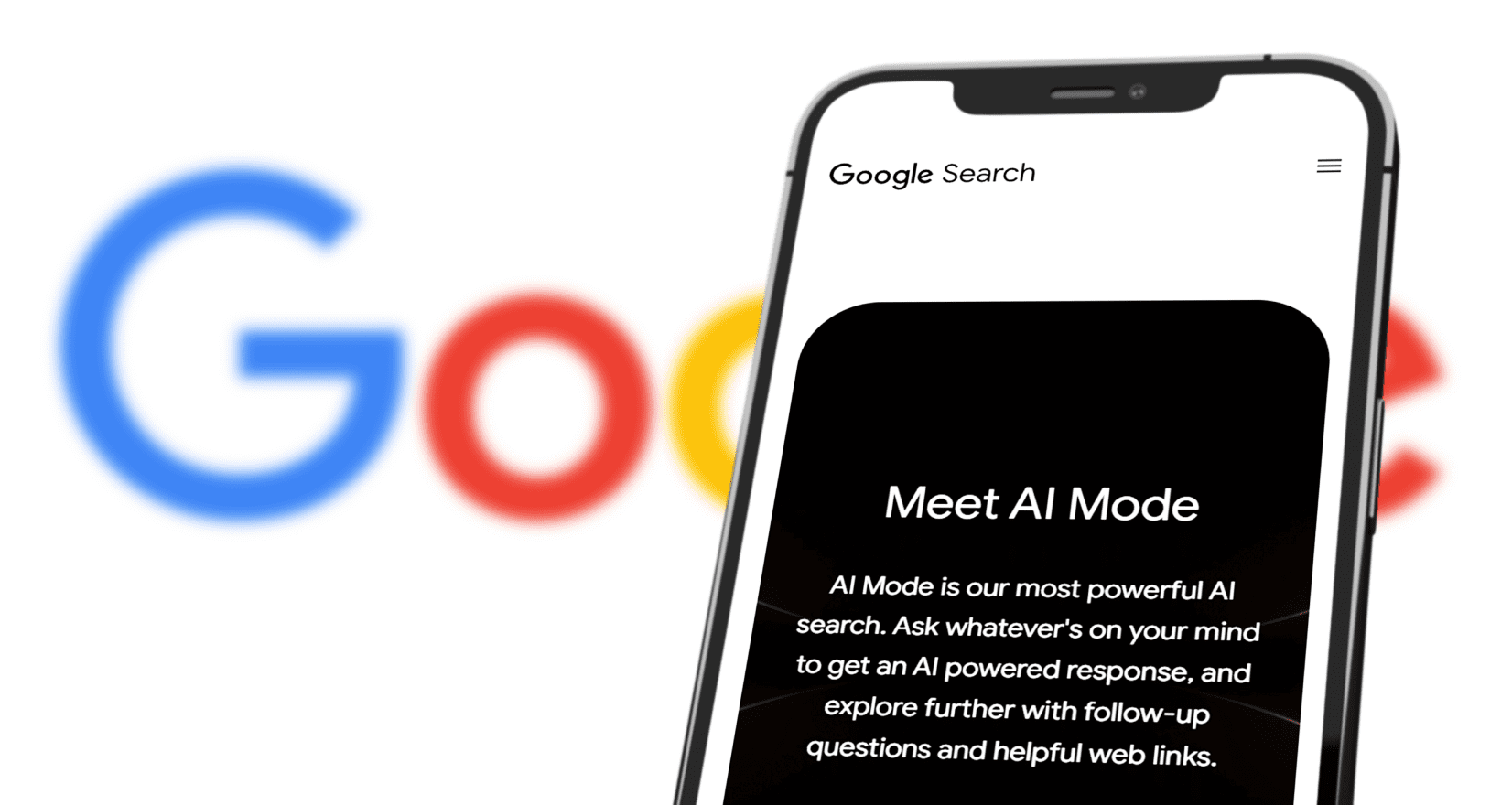
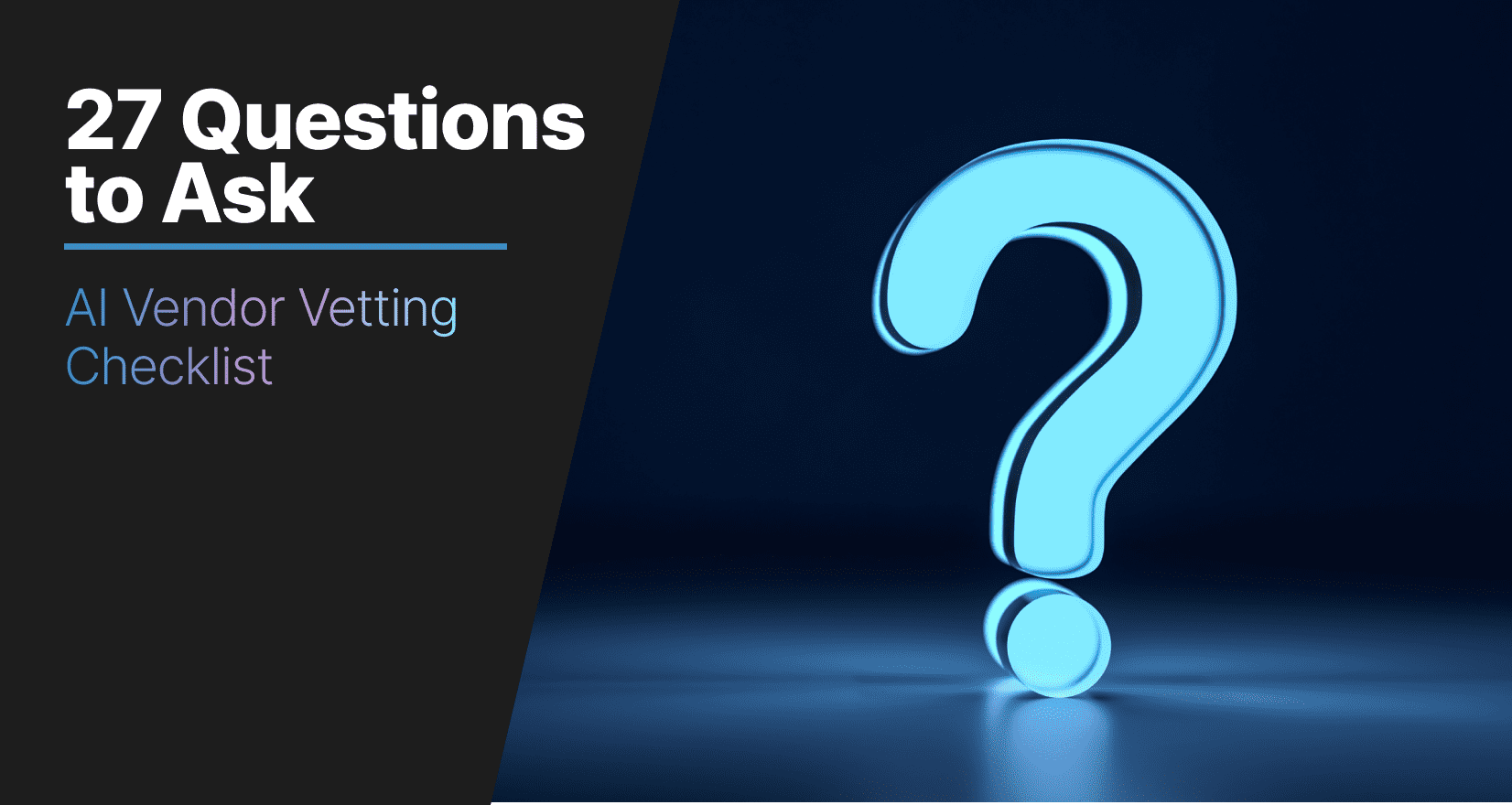
![[Byte Sized Podcast Ep. 31] The Death of DIY Dental Marketing: Why Even Social Media Experts Are Hiring Out - AI and HIPAA compliance in dentistry - My Social Practice - Helping dental practices find new patients My Social Practice - Helping dental practices find new patients - AI and HIPAA compliance in dentistry](https://mysocialpractice.com/wp-content/uploads/2026/02/byte-sized_ep31.png)
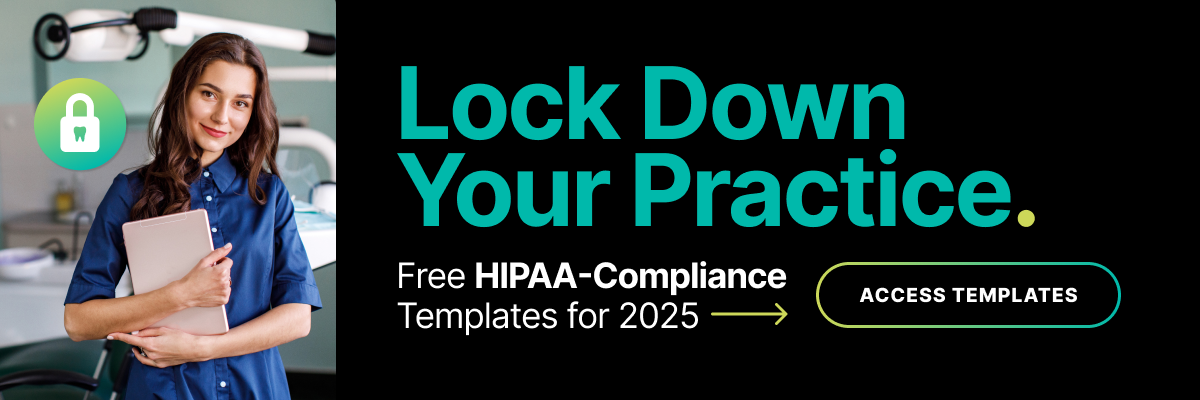
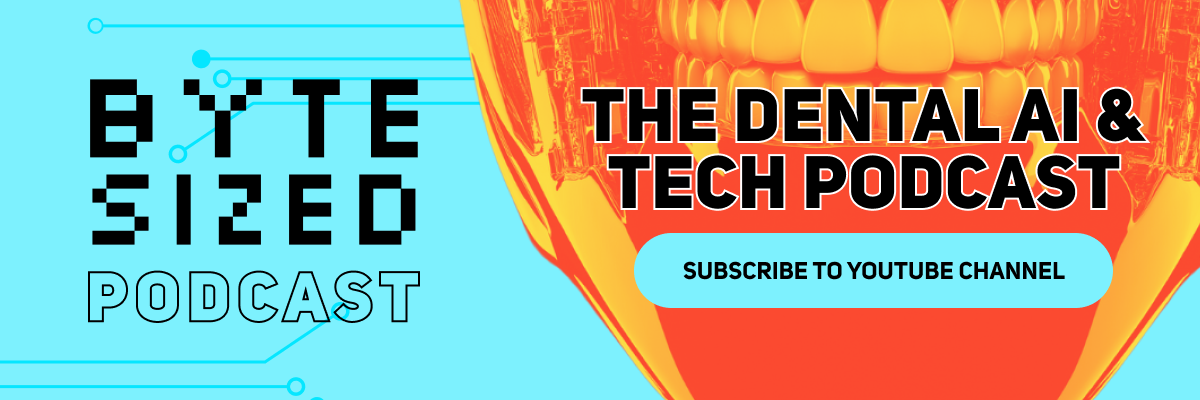

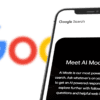

![[Byte Sized Podcast Ep. 31] The Death of DIY Dental Marketing: Why Even Social Media Experts Are Hiring Out - AI and HIPAA compliance in dentistry - My Social Practice - Helping dental practices find new patients My Social Practice - Helping dental practices find new patients - AI and HIPAA compliance in dentistry](https://mysocialpractice.com/wp-content/uploads/2026/02/byte-sized_ep31-100x100.png)

![[Byte Sized Podcast Ep. 30] AI in Dentistry: Why Brand Meaning Beats SEO in 2026 Feat. Reid Holmes - AI and HIPAA compliance in dentistry - My Social Practice - Helping dental practices find new patients AI search, AI in dentistry](https://mysocialpractice.com/wp-content/uploads/2026/02/byte-sized_ep30-100x100.png)